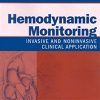ECMO in the Critical Trauma Patient
journals.lww.comGrowing evidence suggests the potential use of Extracorporeal membrane oxygenation (ECMO) for the treatment of refractory respiratory failure in adults, but the clinical benefit in polytraumatic patients is not clear. The selection of patients and the timing for starting the treatment are crucial for success, and before starting ECMO support, risks and benefits must be considered on a case by case basis. The use of heparin should be carefully considered after a multidisciplinary discussion, involving trauma surgical team, anaesthetists and intensivists. Further studies will be warranted to evaluate the role and effect on outcome of ECMO in this cohort of patients as well as the need for organization of dedicated trauma ECMO units. The recent findings suggest that venous–venous ECMO can be feasible in the treatment of refractory respiratory failure and severe acute respiratory distress syndrome (ARDS) trauma-related. The improvement of ECMO techniques including the introduction of centrifugal pumps and heparin-coated circuits are progressively reducing the amount of heparin required.

















